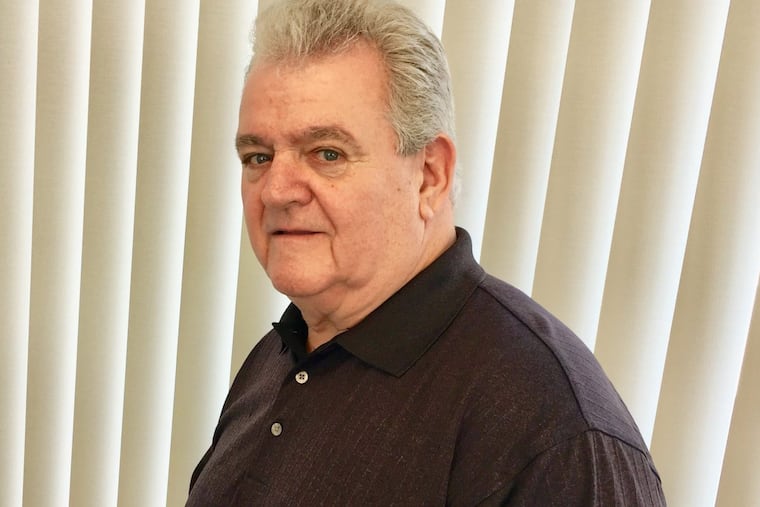U.S. Rep. Bob Brady: Confessions of a bully | Stu Bykofsky
It's not something he's proud of, but Brady felt the time was right to talk about it.

As our national debate explores the dark labyrinth of sexual oppression and dysfunction, it's easy to think of it as a sexual issue.
It can be, but U.S. Rep. Bob Brady sees it differently.
"It is bullying, and I can say that because I was a bully," says the 10-term Philly congressman.
It's not something he's proud of, but surveying the expanding horizon of powerful men getting caught running over women, Brady felt the time was right to talk about it.
His career as a bully started early, in the seventh grade at St. Callistus, at 68th and Lansdowne, where he found himself — the son of a cop — one of the toughest kids in the school.
"I was a pretty big kid and I picked on people," he told me during a conversation earlier this week at city Democratic Party headquarters in Northern Liberties. He's been chairman since 1986.
Why did he pick on people?
"Because I could," he says. "That's what I figured, and I thought that made me important."
He began to feel differently when he realized he was a social outcast, ostracized, and not invited to parties. He was feared, but he was not liked, a female student told him.
That was a wake-up call, leading to introspection.
"Someone told me Robert meant 'protector' in Latin, so that's what I decided to be," he says.
"Are you sure about Robert meaning protector?" I ask him.
"No," he laughs. "I liked it and I didn't look it up."
As the party chair, and as a congressman, Brady is known as a mediator, a patient peacemaker. He has a talent for getting two sides to sit down and talk, and talk, and talk.
He's currently suspected of conspiracy — but not indicted — by the feds for covering up a payment to get an opponent to drop out of a political race. I ask him: Have you substituted bribery for bullying?
"Total bull," he says, and he's confident about the results of an investigation.
He is less confident about the current congressional procedure for handling sexual harassment claims, saying it is skewed against the alleged victim.
Harassment complaints must be filed with the office of compliance, where the accuser faces up to 30 days of counseling, mandatory confidential mediation, followed by a 30-day cooling-off period before a lawsuit can be filed.
"A 30-day cooling-off period," Brady says. "Do you believe that?"
If accusers settle, they must sign a nondisclosure agreement, which shields the identity of perpetrator.
Brady is a co-sponsor of a bill by California Rep. Jackie Speier to cut through the malarkey.
Brady says he knows that female congressional staffers "have a creep list" of members they know to avoid, and says he witnessed a male colleague grab a female colleague's buttocks.
"I was behind a railing, so I couldn't get at him," says Brady, with fire in his blue eyes.
"Men have to have a little bit of balls, to stand up for people who can't stand up for themselves," he says.
Whether you call it bullying or harassment or something else, it is a male problem and won't get fixed until men want it to get fixed.